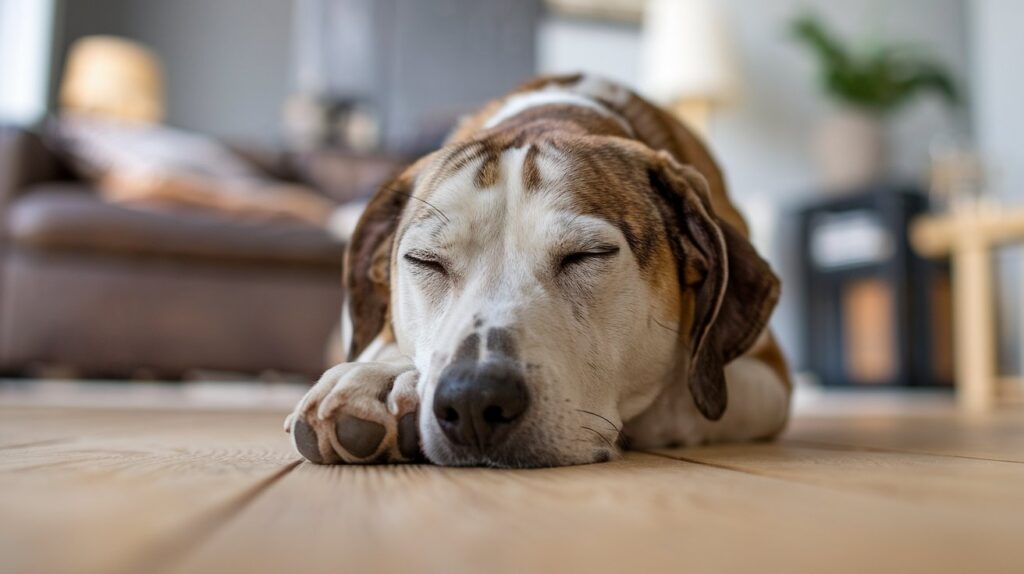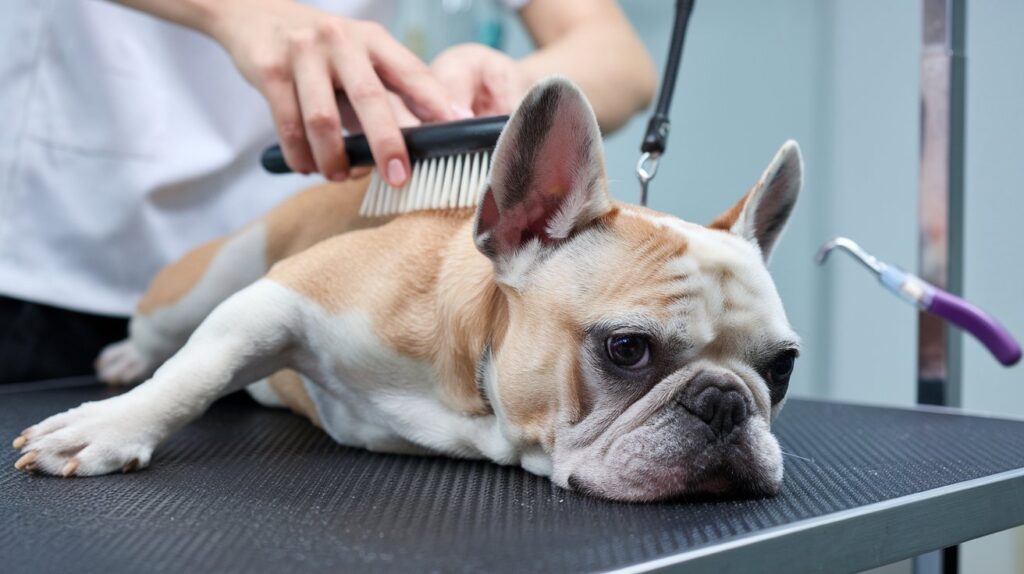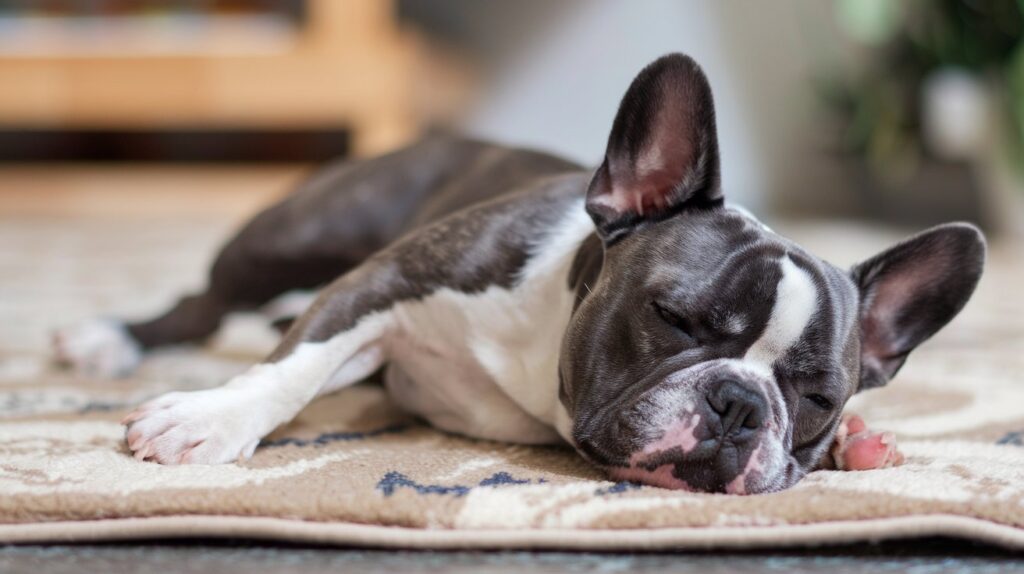Why Is My Dog Cranky Some Mornings? 5 Important Reasons Your Dog Is Irritable

Why Is My Dog Cranky Some Mornings?
Your dog may be cranky some mornings due to several factors, including poor sleep quality, pain or discomfort,
hunger, or anxiety. If your dog didn’t get enough restful sleep, perhaps due to an uncomfortable bed or noise
disruptions, they may wake up irritable. Health issues like arthritis or muscle stiffness, especially in older dogs, can
make mornings painful, leading to a bad mood. Additionally, waking up hungry or thirsty, or feeling anxious about
changes in routine or upcoming separation, can also cause your dog to be cranky when they wake up.
Understanding Your Dog’s Morning Mood
If your dog wakes up cranky some mornings, you’re not alone. Many pet owners notice that their once-happy pup
seems irritable, sluggish, or even aggressive first thing in the morning. This behavior change can be concerning, but
it is often a result of various factors such as sleep quality, health issues, or environmental changes.
Common Reasons for Morning Crankiness in Dogs
Poor Sleep Quality
Like humans, dogs need a good night’s sleep to feel refreshed and energized. If your dog wakes up cranky, they might
not get enough quality rest. Disruptions during the night, uncomfortable sleeping arrangements, or loud noises
could cause your dog to feel groggy and irritable in the morning. Older dogs, in particular, may have trouble finding a
comfortable position due to joint pain, which can affect their sleep.
How to Improve Your Dog’s Sleep Quality
Comfortable Bed:
Ensure your dog has a cozy, supportive bed that suits their size and needs.
Quiet Environment:
Try to minimize noise and distractions that could interrupt their sleep.
Consistent Bedtime:
Establish a regular bedtime routine to help your dog wind down and relax.
Health Check:
If your dog seems restless during the night, consult your vet to rule out any underlying health issues.
Pain or Discomfort
Pain is one of the most common reasons for changes in a dog’s temperament. Dogs experiencing discomfort may
become cranky, especially in the morning after a long period of inactivity. Conditions such as arthritis, hip dysplasia,
or muscle stiffness can make it difficult for your dog to move after a night’s sleep, leading to irritability.
Identifying Signs of Pain in Dogs
Limping or Stiffness:
Notice if your dog is slow to get up or limps after waking up.
Whining or Growling:
Your dog may vocalize more if they are in pain.
Reduced Activity:
A decrease in morning activity levels could be a sign of discomfort.
Reluctance to Be Touched:
If your dog avoids being petted or touched, especially in certain areas, they may be experiencing pain.
Hunger or Thirst
Dogs can become cranky when they wake up hungry or thirsty. If your dog’s feeding schedule is irregular or if they
haven’t eaten enough the day before, they may wake up feeling irritable. Dehydration can also lead to mood changes,
so ensuring your dog has access to fresh water at all times is essential.
Managing Hunger and Thirst
Regular Feeding Schedule:
Feed your dog at consistent times to regulate their appetite.
Pre-Bedtime Snack:
For dogs that tend to wake up hungry, a small, healthy snack before bedtime might help.
Hydration:
Make sure your dog’s water bowl is always full, especially overnight.

Anxiety or Stress
If your dog is dealing with anxiety or stress, it could manifest as crankiness in the morning. Changes in routine, new
environments, or separation anxiety can cause your dog to feel unsettled, leading to irritability. If your dog is
experiencing anxiety, mornings may be particularly tough if they anticipate being left alone for the day.
Alleviating Anxiety in Dogs
- Calming Routines: Establish calming morning routines, such as quiet time or gentle walks, to ease your dog’s stress.
- Comfort Items: Provide your dog with familiar items like toys or blankets to make them feel secure.
- Exercise: Ensure your dog gets enough physical activity to release any pent-up energy that could be contributing to anxiety.
- Consult a Professional: If your dog’s anxiety is severe, consider seeking help from a vet or animal behaviorist.
Hormonal Changes
Hormonal fluctuations, especially in older dogs, can also affect mood. Conditions like hypothyroidism can cause
lethargy, irritability, and mood swings. If you suspect that hormonal imbalances are causing your dog’s crankiness,
it’s important to have them checked by a vet.
Symptoms of Hormonal Imbalances
Weight Changes:
Sudden weight gain or loss could be a sign of thyroid issues.
Hair Loss:
Thinning fur or bald patches may indicate an underlying hormonal problem.
Lethargy:
A general lack of energy or enthusiasm could point to hormonal changes.
How to Help Your Dog Have a Better Morning
Morning Exercise and Mental Stimulation
Providing your dog with physical and mental stimulation in the morning can help improve their mood. A short walk,
some playtime, or puzzle toys can keep your dog engaged and happy.
Exercise:
Taking your dog for a walk in the morning can help burn off excess energy and reduce crankiness.
Puzzle Toys:
These can provide mental stimulation and help your dog stay focused and calm.
Training Sessions:
Incorporating a short training session in the morning can keep your dog sharp and mentally stimulated.
Health Check-Ups
If your dog’s crankiness becomes a recurring issue, it may be time for a visit to the vet. Routine check-ups can help
identify any underlying health problems that could be causing irritability.
Regular Vet Visits:
Ensure your dog gets annual check-ups to monitor their overall health.
Monitor Changes:
Keep an eye on your dog’s behavior and report any concerning changes to your vet.

Conclusion: Why Is My Dog Cranky Some Mornings
Crankiness in dogs is not uncommon, especially in the morning. Whether it’s due to poor sleep, pain, hunger,
anxiety, or hormonal changes, understanding the root cause of your dog’s mood can help you address the issue. By
providing a comfortable sleeping environment, sticking to a consistent routine, and addressing any health concerns,
you can help your dog start their mornings in a much better mood.
FAQs: Why Is My Dog Cranky Some Mornings
Why is my dog grumpy in the morning?
Your dog may be grumpy in the morning due to poor sleep, pain, hunger, or anxiety. Discomfort from stiff joints,
lack of restful sleep, or waking up hungry can cause irritability.
Do dogs wake up in a bad mood?
Yes, dogs can wake up in a bad mood, especially if they don’t sleep well, are in pain, or feel anxious. Disruptions or
discomfort during sleep can affect their morning mood.
Why is my dog so bitey in the morning?
A dog may be bitey in the morning if they are overstimulated, teething (in puppies), or trying to release pent-up
energy. Lack of morning exercise or mental stimulation can also contribute to this behavior.
Why does my dog not feel well in the morning?
Your dog might not feel well in the morning due to digestive issues, dehydration, or underlying health conditions like
arthritis or hormonal imbalances. Always monitor symptoms and consult a vet if the problem persists.

Jahanzaib Kaleem is a passionate and knowledgeable pet writer and veterinarian dedicated to enhancing the well-being of pets and educating pet owners around the world. With years of experience in veterinary medicine and a deep love for animals, Jahanzaib combines his medical expertise with a flair for writing to deliver insightful and practical advice on pet care.





